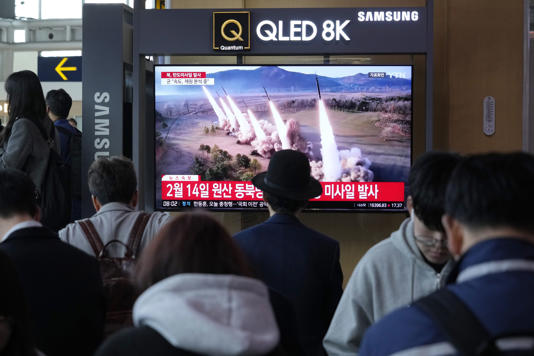North Korea’s recent test-fire of a suspected intermediate-range ballistic missile has once again escalated tensions in the region and underscored the persistent challenges posed by Pyongyang’s weapons program. This article examines the implications of the missile test, analyzes the evolving dynamics of North Korea’s military capabilities, and explores the international response, particularly from South Korea, the United States, and Japan.
North Korea’s Missile Test: The launch of the suspected intermediate-range ballistic missile by North Korea represents a significant advancement in the country’s military capabilities. With a reported range of approximately 600 kilometers, the missile poses a direct threat to neighboring countries, including South Korea and Japan, and underscores North Korea’s relentless pursuit of developing long-range weapons capable of reaching targets in the Pacific, including the U.S. territory of Guam.
Implications for Regional Security: The latest missile test further heightens regional security concerns and exacerbates tensions on the Korean Peninsula. North Korea’s continued provocations undermine efforts towards denuclearization and peaceful resolution of the longstanding conflict. The ability of Pyongyang to develop and test advanced missile technology raises alarm bells among its neighbors and underscores the urgent need for a coordinated response from the international community.
Assessment of North Korea’s Military Capabilities: The successful test-fire of an intermediate-range ballistic missile signals North Korea’s progress in advancing its missile technology. The development of solid-fuel engines and hypersonic capabilities represents a significant leap forward in the country’s weapons program, potentially enhancing its ability to evade missile defense systems and strike distant targets with greater precision. The implications of North Korea’s military advancements extend beyond the region and pose challenges for global security.
International Response and Diplomatic Efforts: In response to North Korea’s missile test, South Korea, the United States, and Japan have reaffirmed their commitment to maintaining peace and stability in the region. Joint military exercises, such as the combined aerial exercise conducted near Jeju island, demonstrate the resolve of regional allies to enhance their defense capabilities and deter potential aggression from Pyongyang. Additionally, diplomatic efforts, including engagement with China and Russia, are crucial for promoting dialogue and addressing the root causes of North Korea’s belligerent behavior.
The recent missile test by North Korea underscores the urgent need for a coordinated and multilateral approach to address the security challenges posed by Pyongyang’s weapons program. As tensions persist on the Korean Peninsula, diplomatic engagement, enhanced deterrence measures, and sustained international pressure are essential for promoting stability and preventing further escalation of conflict. The international community must remain vigilant and united in its efforts to address the threat posed by North Korea’s ballistic missile capabilities while working towards a peaceful and denuclearized Korean Peninsula.
